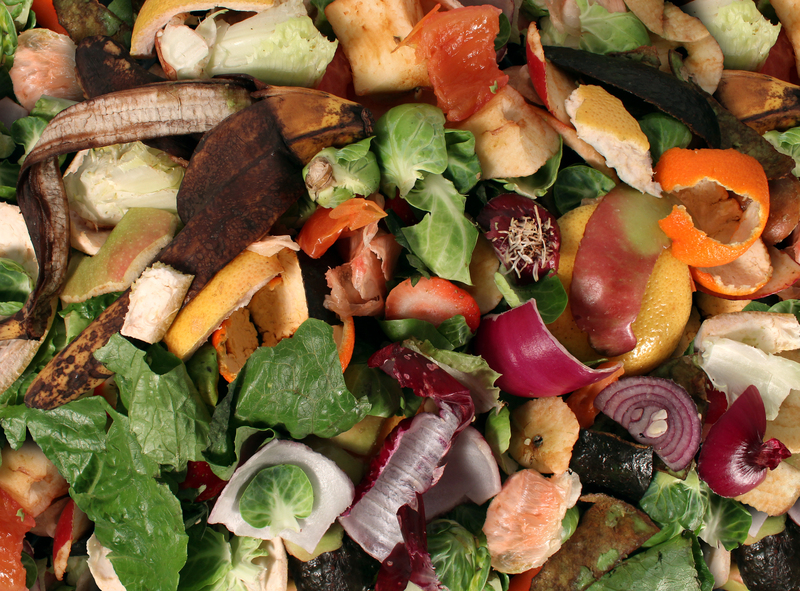Boost Your Home's Sustainability with Expert Recycling Tips
In an age where eco-conscious living is more important than ever, enhancing your home's sustainability goes hand in hand with developing smarter recycling habits. Whether you're taking your first steps towards a greener lifestyle or seeking new ways to optimize your current efforts, this comprehensive guide will empower you with expert recycling tips that make a real difference--for your home, your community, and the planet.
Why Focus on Home Sustainability and Recycling?
With the effects of climate change and environmental degradation becoming increasingly urgent, adopting a sustainable lifestyle at home is one of the most impactful choices you can make. Recycling is a foundational aspect of this journey, helping:
- Conserve natural resources
- Reduce landfill waste
- Lower your home's carbon footprint
- Promote a healthier environment for future generations
Expert recycling strategies and sustainability solutions not only benefit the environment, but often also save money and foster a sense of community responsibility.

Understanding the Basics: What Exactly Can Be Recycled?
Home recycling might seem straightforward, but there's more to it than tossing items in a blue bin. Understanding materials and local guidelines is key to home recycling success:
- Paper and Cardboard (newspapers, magazines, cardboard boxes, office paper)
- Plastics (check recycling symbols and local rules--#1 and #2 plastics are widely accepted, others vary)
- Metals (aluminum cans, tin cans, foil)
- Glass (bottles and jars--usually sorted by color)
However, items like greasy pizza boxes, plastic bags, batteries, electronics, and certain types of glass or foam cannot go in curbside recycling and require specialized handling. Always check your municipality's recycling guidelines for specifics.
Expert Recycling Tips for a More Sustainable Home
1. Organize Your Recycling Station
Begin by setting up a convenient and clearly labeled recycling center in your kitchen, garage, or utility area. Consider using separate bins for:
- Different plastics (by recycling symbol)
- Glass
- Paper/cardboard
- Metals
Tip: Place your bins where you generate most waste--this promotes consistent recycling habits for the whole household.
2. Rinse and Dry Recyclables
Residue from food or drinks can contaminate entire batches of recycled materials. Rinse bottles, jars, and containers to remove leftovers and fats. Let them dry before tossing into the bin. This improves material quality and helps local facilities process recyclables effectively.
3. Break Down and Flatten Cardboard Boxes
Boost your home's sustainability efforts by flattening cardboard boxes and removing excess tape or plastic inserts. This saves space in your bin, reduces curbside overflow, and ensures boxes are efficiently processed at recycling centers.
4. Master the Art of Composting
Organic waste makes up a significant portion of household garbage. Instead of sending food scraps and yard clippings to the landfill, set up a compost bin for:
- Vegetable and fruit peels
- Coffee grounds
- Eggshells
- Yard trimmings
Not only does composting reduce landfill waste, but it also produces nutrient-rich soil for your garden, boosting sustainability even further.
5. Avoid "Wishcycling"
Wishcycling is the habit of placing non-recyclable items in the recycling bin in the hope they'll be processed. Unfortunately, this can contaminate entire loads and complicate recycling procedures. Instead, when in doubt, check first or dispose of such items via designated take-back programs.
6. Recycle Electronics the Right Way
Old smartphones, computers, batteries, and even cables contain valuable materials--but they can't go in standard recycling. Look for local electronics recycling drives or check with electronics stores that offer e-waste recycling programs. This ensures safe, responsible disposal and recovery of precious resources.
7. Reuse Before You Recycle
The most sustainable choice is often to reuse items before sending them to be recycled. Get creative! For example:
- Repurpose jars as storage containers
- Turn old t-shirts into cleaning rags
- Use cardboard boxes for home organization or crafts
This approach maximizes each item's lifespan, reducing the overall amount of waste you generate.
8. Purchase Recycled and Eco-Friendly Products
Close the recycling loop by supporting products made from recycled materials--from paper goods to carpets and furniture. Choose brands with eco-friendly, minimal, or compostable packaging, which encourages manufacturers to adopt sustainable practices.
9. Involve Your Household
Empowering every member of your family to participate is core to sustainable home recycling. Teach children about recycling from an early age, and assign roles or rotate responsibilities to keep the process fun and collaborative.
10. Stay Informed and Engaged
Recycling rules and sustainability best practices evolve over time. Connect with local environmental groups, subscribe to municipal newsletters, or follow sustainability experts online to stay up to date.
Advanced Approaches to Home Sustainability
Once you've mastered the basics of recycling at home, consider taking your sustainability efforts to the next level.
Participate in Community Recycling Initiatives
Many areas offer special programs for household hazardous waste, bulk plastics, or textile recycling. Organize neighborhood drives or volunteer with local organizations to support broader environmental goals.
Opt for Zero Waste Practices
Zero waste aims to minimize what you send to landfill by reusing, composting, recycling, or upcycling almost everything. Examples include:
- Using reusable shopping bags, water bottles, and coffee cups
- Shopping at bulk stores and bringing your own containers
- Choosing products with minimal or refillable packaging
This holistic approach dramatically boosts your home's overall sustainability footprint.
Install a Home Recycling Center
For serious recyclers, create a dedicated recycling area in your garage, basement, or backyard shed. Equip the space with:
- Labeled bins and shelving for different materials
- A scale for tracking reductions in waste
- Educational posters highlighting what is and isn't recyclable
Track your progress and celebrate milestones with the whole family to keep motivation high!
Frequently Overlooked Items That Can Be Recycled
Did you know? Many everyday items are often overlooked for recycling, leading to unnecessary landfill waste. Double check how to properly recycle these materials in your community:
- Batteries (use special drop-off containers or collection events)
- Light bulbs (fluorescents and LEDs have specialized recycling)
- Clothing and textiles (donate or use textile recycling programs)
- Plastic grocery bags (return to supermarket collection bins)
- Wine corks (many stores now offer cork recycling bins)
- Prescription eyeglasses (donate through local nonprofits)
- Coffee pods (check for brand-specific recycling solutions)
By expanding your recycling efforts beyond basics, you can dramatically boost your home's sustainability and support a truly circular economy.
Common Recycling Myths Debunked
Misinformation abounds, often leading to confusion or even discouragement when it comes to recycling at home. Let's dispel some prevalent myths:
- Myth: "Everything with a recycling symbol can be recycled."
Reality: This symbol only denotes the type of plastic; not all facilities accept every type. - Myth: "Recycling uses more energy than it saves."
Reality: Recycling typically uses less energy than manufacturing with raw materials, especially for metals and glass. - Myth: "If one item is dirty, the whole bin goes to landfill."
Reality: Food residue can cause contamination, but it's rarely a reason for full-bin rejection--just a reason to rinse properly. - Myth: "Plastics can be recycled infinitely."
Reality: Most plastics degrade in quality over time--a reason to reduce use and reuse where possible.
Eco-Smart Shopping Tips to Reduce Waste
Reducing waste at the source is the most effective way to support home sustainability. Consider these shopping changes:
- Choose products packaged in recyclable, compostable, or reusable containers
- Buy in bulk to minimize packaging
- Support local markets using less packaging and lower transportation emissions
- Look for certified eco-friendly brands and products
The Environmental Impact: Why Your Actions Matter
Every sustainable choice amplifies positive change. According to the EPA, recycling one ton of paper saves 17 trees and over 7,000 gallons of water. Recycling aluminum saves 95% of the energy required to make it from raw materials. These micro-actions scale up to massive environmental benefits when entire communities participate.

Resources for Learning and Getting Involved
Ready to dive deeper? Here are useful resources to support your home's sustainability journey:
- Earth911.com: Search for recycling centers by zip code and learn about hard-to-recycle items.
- EPA's Recycling Basics: Government guidelines and updates.
- Local municipal recycling programs: Stay updated on accepted materials and collection schedules.
- Nonprofits like Terracycle or Recycle Now: Specialty recycling streams and zero waste guides.
Conclusion: Start Your Journey to a Greener Home Today
Boosting your home's sustainability through expert recycling tips is more than just a routine--it's a vital part of a responsible, ethical lifestyle. By following these simple yet powerful practices, you contribute to a healthier planet while enjoying a tidier, more efficient home. Remember, every can recycled, every piece of compost made, and every mindful purchase adds up.
Embark on your sustainability journey today and inspire others in your community to make recycling a cornerstone of daily life. Your efforts create a ripple effect that benefits generations to come.